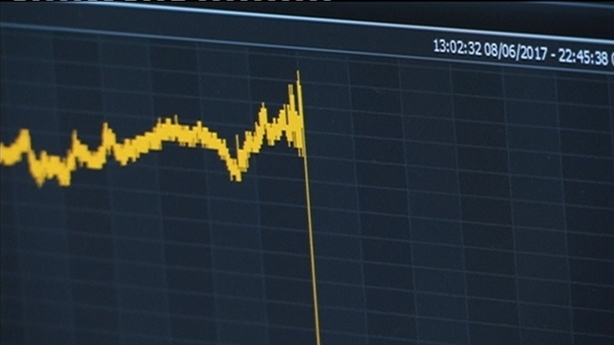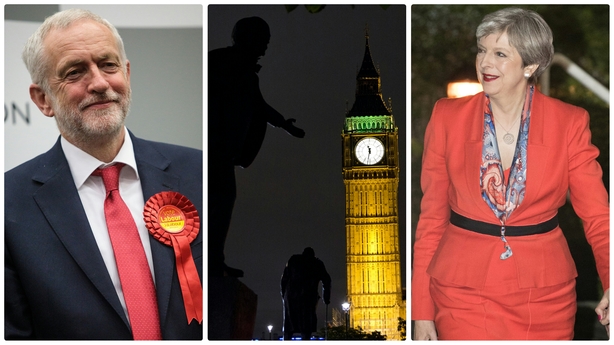Sterling has started to make back some of the losses recorded earlier this morning and overnight in the aftermath of the UK election outcome.
The pound had fallen about 1.5% against the dollar at one stage and also lost as much as 2.3% against the euro - going as low as 88.5 pence at one stage this morning.
It was standing at 87.96 pence against the euro shortly before 6.30pm.
Sterling had dived after the shockingly bad election result for Prime Minister Theresa May plunged Britain into political chaos days before the start of Brexit talks.
The surprising result questions about how Britain will advance with its plan to leave the European Union, and whether any party can form a stable government.

A 1.5-2% drop is a big one-day move for the pound but currency traders have grown used to volatility where sterling is concerned.
In fact, this latest drop is only the seventh biggest one-day fall for the pound over the past year.
Sterling fell 8% last June after the Brexit vote and it dropped another 3% in a single day later that month.
Sterling recovers from shock UK election result pic.twitter.com/siUiPl809I
— RTÉ Business (@RTEbusiness) June 9, 2017
Falls for sterling have tended to support London's internationally-focussed FTSE 100 blue chip index.
And the London stock market was higher today, as dealers eyed that tumbling pound. The FTSE 100 index had gained 0.86% in late afternoon trade, while the Frankfurt DAX and the Paris CAC were both 0.7% higher.
Dublin's ISEQ index reversed its earlier losses to stand 0.2% higher this afternoon.
Analysts said that markets are pricing in a more complex outlook for policy implementation, including Brexit.
Investors' traditional views of whether the Conservatives or Labour would be good or bad for the pound, have been muddied in this election, not least by the prospect of Brexit talks due to start on June 19.
Some banks have said a high-spending Labour government could spur economic growth and cause the Bank of England to raise interest rates more quickly.

Some also argue that any Labour-led coalition might aim for a softer deal on Britain's planned departure from the European Union than the "hard Brexit" that markets have worried May would deliver.
Meanwhile, Citi has said that British Prime Minister Theresa May was likely to resign after she failed to win a majority in the election.
"A period of political uncertainty lies ahead," Citi said in a research note.
"Following what is widely regarded as a poor campaign and failure to translate a strong lead in the polls into a larger majority in the Commons, we expect May is likely to resign," Citi said, adding that a new election was possible.

